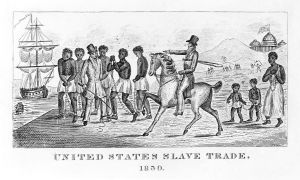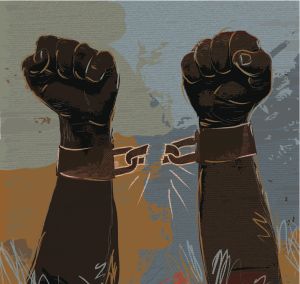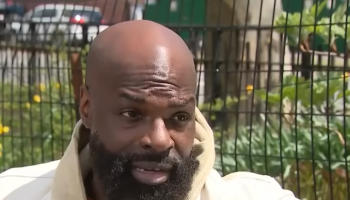
Source: Historical / Getty
For decades there’s been plenty of talk and multiple rumors regarding when or if black people would ever be adequately paid reparations for the evil manifested as slavery. Well, one New Jersey college has just made a huge multi-million-dollar commitment to pay what they feel is appropriate.
Additionally, the program is said to cost over $1 million a year, with $27.6 million set aside in the endowment to sustain it. Princeton Theological Seminary will make changes to its curriculum and hire more scholars to study the legacy of slavery and rename campus spaces in honor of prominent African-Americans, in addition to other plans.
If you’re wondering why the Princeton Theological Seminary is deciding to give reparations now, it’s due to a two-year audit conducted by faculty and administrators that detailed the college’s relationship to slavery.
The report found that, while the seminary did not own slaves and campus buildings were not constructed with slave labor, it did receive financial contributions from Southern sources, including slave owners and congregations with slavery ties. Also, a large portion of the seminary’s endowment was connected to Southern banks that were financing the expansion of slavery in the Southwest.
Further research uncovered that several of the college’s founders and early leaders used slave labor, despite speaking out against slavery. There were also many seminary faculty, board members and alumni who were involved in the American Colonization Society—an organization that argued against immediate emancipation and advocated sending formerly enslaved people back to Africa.
M. Craig Barnes, Seminary President, had this to say about the reparations:
“The Seminary’s ties to slavery are a part of our story. It is important to acknowledge that our founders were entangled with slavery and could not envision a fully integrated society.”
John White, Dean of Students, echoed similar sentiments:
“These responses are intended as acts of repentance that will lead to lasting impact within our community. This is the beginning of the process of repair that will be ongoing.”

Source: JDawnInk / Getty
Source: The Shade Room















